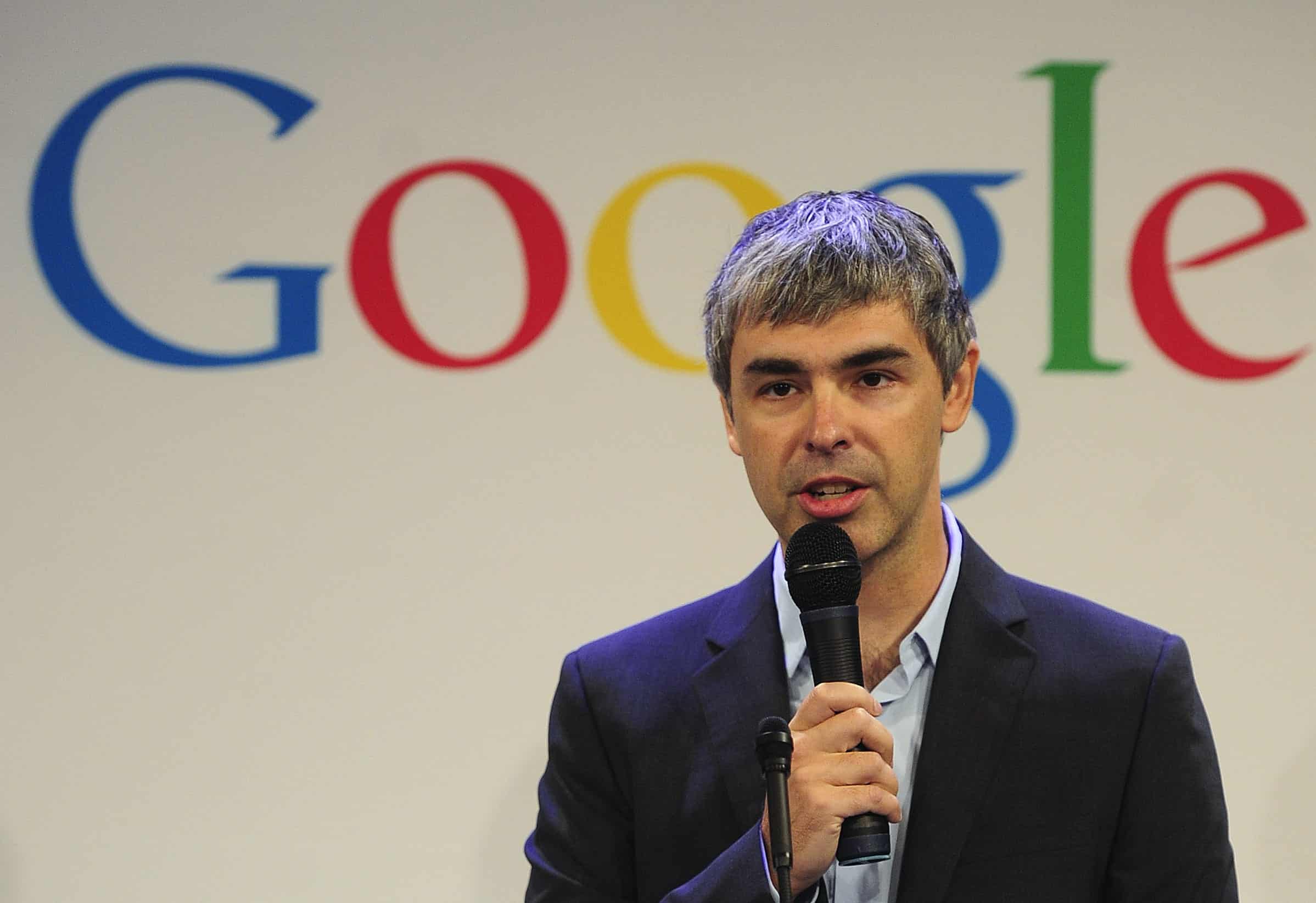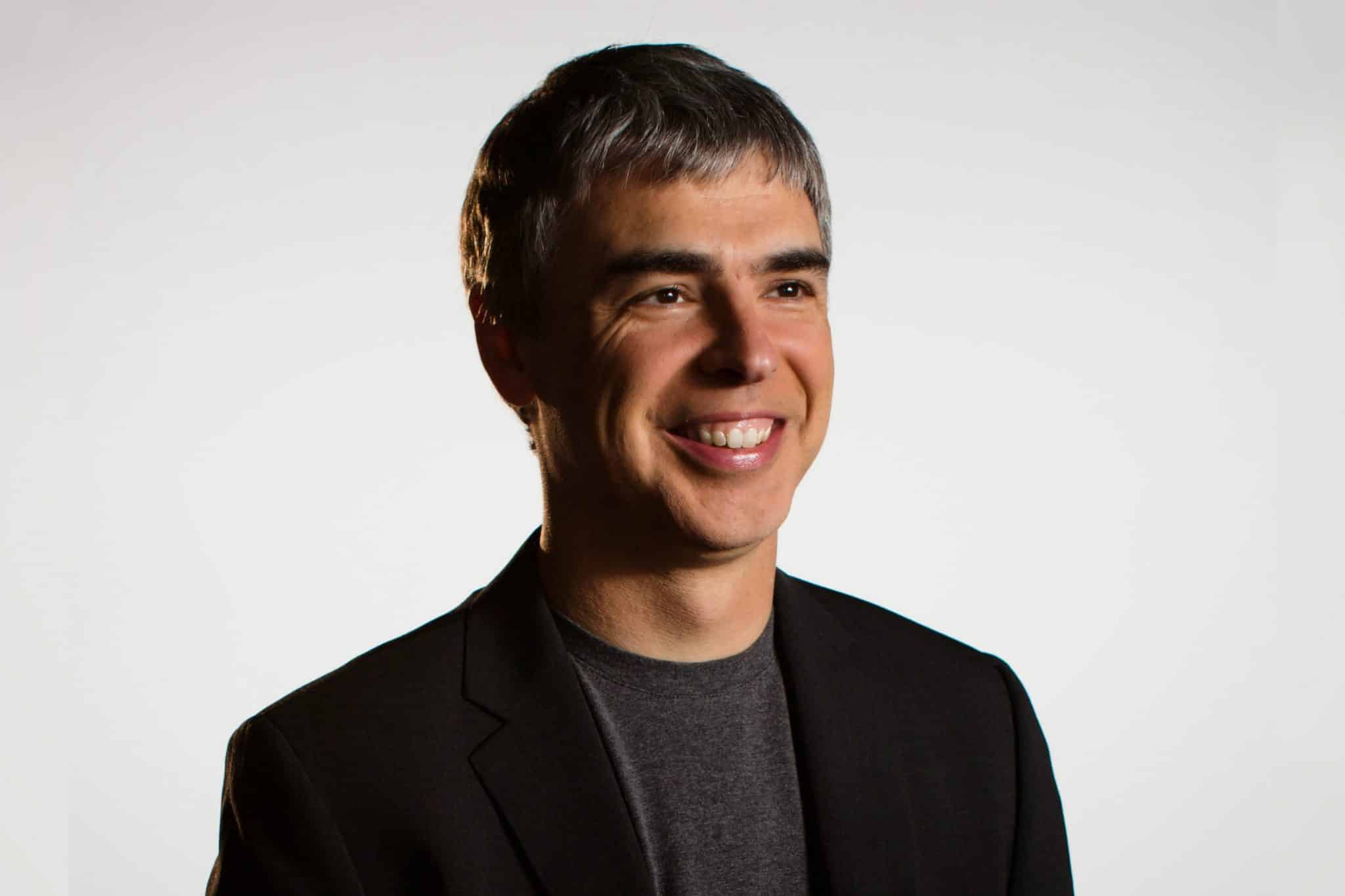Larry Page: The Visionary Behind Google's Digital Revolution
In the vast landscape of the internet, few names resonate with the profound impact and transformative power of Larry Page. As the co-founder of Google, he didn't just build a company; he fundamentally reshaped how the world accesses information, connects, and innovates. His journey from a curious computer science student to one of the most influential figures in technology is a testament to unwavering vision and relentless pursuit of organizing the world's knowledge.
From his early days immersed in a family of computer scientists to his pivotal role in creating the world's most popular search engine, Larry Page's narrative is one of groundbreaking innovation and strategic leadership. This article delves into the life, career, and enduring legacy of the man who, alongside Sergey Brin, turned a doctoral research project into a global phenomenon, ultimately leading both Google and its ambitious parent company, Alphabet.
Table of Contents
- Larry Page: A Brief Biography
- Early Life and the Genesis of Curiosity
- The Stanford Connection: A Fateful Meeting
- The Birth of a Giant: Founding Google
- Leadership Evolution: From Google CEO to Alphabet Visionary
- Driving Innovation and Corporate Agility
- Post-CEO Influence and Future Endeavors
- Net Worth and Enduring Impact
Larry Page: A Brief Biography
Born on March 26, 1973, in East Lansing, Michigan, Larry Page was seemingly destined for a life intertwined with technology. His upbringing in a household steeped in computer science laid the groundwork for his future endeavors. His father, Carl Victor Page, was a pioneer in artificial intelligence and a computer science professor at Michigan State University, while his mother, Gloria Page, was a computer programming instructor. This environment undoubtedly fostered his early interest in computers and an innate curiosity about how information could be structured and accessed, setting the stage for his groundbreaking contributions.
| Detail | Information |
|---|---|
| Full Name | Lawrence Edward Page |
| Date of Birth | March 26, 1973 |
| Place of Birth | East Lansing, Michigan, U.S. |
| Nationality | American |
| Occupation | Computer Scientist, Internet Entrepreneur |
| Known For | Co-founding Google with Sergey Brin |
| Education | University of Michigan (B.S.), Stanford University (M.S.) |
| Current Role (as of 2019 step-down) | Alphabet Board Member, Controlling Shareholder |
| Net Worth (as of Dec 2024 Forbes) | 6th wealthiest person globally (approx.) |
| Alphabet Shareholding | Approximately 5.7% (individual largest shareholder) |
Early Life and the Genesis of Curiosity
Larry Page's formative years were a breeding ground for his future innovations. Born into a family deeply immersed in the burgeoning field of computer science, his exposure to technology wasn't merely casual; it was fundamental to his upbringing. This early immersion provided him with a unique vantage point, fostering a profound understanding and fascination with the potential of computers. He wasn't just observing technology; he was living within its very fabric, which instilled in him a deep-seated desire to explore its possibilities and solve complex problems.
Family Influence and Technological Roots
The influence of his parents cannot be overstated. His father, a pioneer in artificial intelligence, and his mother, a computer programming instructor, created an intellectual environment where technological exploration was not just encouraged but celebrated. This familial backdrop meant that discussions about algorithms, data structures, and the future of computing were commonplace. It was within this intellectually stimulating atmosphere that Larry Page developed an early interest in computers, moving beyond mere curiosity to a genuine passion for understanding how systems work and how information could be organized. This foundational experience was critical in shaping his later pursuits, particularly his drive to make vast amounts of information accessible and orderly, a vision that would define his life's work.
The Stanford Connection: A Fateful Meeting
The year 1995 marked a pivotal moment in the trajectory of the internet and, unknowingly, for Larry Page himself. It was the year he considered Stanford University for his graduate studies, a decision that would lead to one of the most significant collaborations in technological history. Stanford, a hotbed of innovation and research, provided the perfect ecosystem for ambitious minds like Page's to flourish. He had already completed his undergraduate studies in computer science at the University of Michigan, and Stanford offered the ideal environment to pursue a doctorate and delve deeper into his interests.
Meeting Sergey Brin
As fate would have it, a fellow Stanford Ph.D. student, Sergey Brin, was assigned to show Larry Page around the campus. What began as a routine campus tour quickly evolved into a dynamic intellectual exchange. Despite initial disagreements on various topics, their shared academic pursuits and a mutual fascination with large-scale information retrieval systems quickly forged a bond. Both were pursuing doctorates in computer science, and their intellectual synergy laid the groundwork for a partnership that would revolutionize the digital world. This meeting wasn't just the start of a friendship; it was the genesis of Google, a company born from their shared academic curiosity and a bold vision for the future of information.
The Birth of a Giant: Founding Google
The collaboration between Larry Page and Sergey Brin at Stanford soon transcended academic curiosity, evolving into a groundbreaking research project that would eventually become Google. Their initial work focused on the fundamental problem of organizing the vast and rapidly expanding information on the World Wide Web. They recognized that existing search engines were often inefficient, relying on simple keyword matching rather than understanding the underlying relevance or authority of web pages. This inefficiency was a critical barrier to making the internet truly useful, and it presented a challenge that Page and Brin were uniquely equipped to tackle.
The Vision to Organize the World's Information
Larry Page's core insight, which became the foundation of Google, was the concept of "PageRank." Instead of merely counting how many times a term appeared on a page, PageRank evaluated the importance of a page by looking at the number and quality of other pages that linked to it. This revolutionary algorithm, born out of their academic research, posited that a link from an authoritative page was more valuable than many links from less important ones. This elegant solution to the problem of information overload was the cornerstone of their vision: "to organize the world's information and make it universally accessible and useful." In 1996, they founded Google, initially operating out of a garage, and officially incorporated it in 1998. This vision, spearheaded by Larry Page, transformed the internet from a chaotic collection of pages into a navigable and incredibly powerful resource, fundamentally changing how billions of people find information every day.
Leadership Evolution: From Google CEO to Alphabet Visionary
Larry Page's leadership journey at Google was marked by periods of intense focus on product development, strategic growth, and ultimately, a transformative restructuring of the company. He served as CEO of Google from its founding in 1998 until 2001, guiding the nascent company through its critical early years. During this initial tenure, he played a central role in establishing Google's core values of innovation and user focus, growing the company to over 200 employees and achieving profitability before stepping into a role as President, Products in April 2001, ceding the CEO position to Eric Schmidt. This initial period laid the robust foundation for Google's future dominance.
Dual CEO Roles and Strategic Restructuring
A decade later, in April 2011, Larry Page returned to the helm as Google's CEO, signaling a renewed emphasis on innovation and ambitious new projects. His second tenure as CEO, lasting until July 2015, was characterized by bold strategic moves. He oversaw significant acquisitions, pushed for advancements in areas like artificial intelligence and self-driving cars (an area of long-standing interest for Page, evident from his graduate research), and streamlined the company's focus. The pinnacle of his second CEO term was the monumental restructuring of Google into Alphabet Inc. in 2015. This move saw Google become a subsidiary of the newly formed parent company, Alphabet, with Page serving as the CEO of Alphabet and Sergey Brin as its President. This restructuring aimed to foster corporate agility, allowing various ventures to operate independently under the Alphabet umbrella, thus encouraging more ambitious, long-term "moonshot" projects while maintaining Google's core business. Larry Page played a central role in this evolution, emphasizing corporate agility and innovation at every turn.
Driving Innovation and Corporate Agility
Throughout his career, Larry Page has consistently emphasized innovation and a forward-thinking approach. His leadership style often encouraged engineers to pursue ambitious projects, even those with uncertain outcomes, embodying the "moonshot" philosophy that became synonymous with Google and later, Alphabet. He championed projects that pushed the boundaries of technology, from Google Maps and Android to later ventures like Waymo (self-driving cars) and Verily (life sciences). His vision for corporate agility, realized through the Alphabet restructuring, was designed to empower these diverse ventures, allowing them to thrive with more autonomy and focused leadership, while still benefiting from the resources and foundational technology of the larger organization. This strategic move solidified his legacy not just as a co-founder of a revolutionary search engine, but as an architect of a diversified technological conglomerate designed for future innovation, proving that a company could be both massive and nimble.
Post-CEO Influence and Future Endeavors
In December 2019, Larry Page stepped down as CEO of Alphabet, passing the torch to Sundar Pichai, who also retained his role as Google's CEO. While he relinquished the day-to-day operational leadership, his influence remains profound. Page continues to serve as a board member of Alphabet, providing strategic guidance and oversight. Crucially, he remains a controlling shareholder, holding approximately 5.7% of Alphabet's shares, making him the individual largest shareholder. This significant stake ensures his continued sway over the company's direction and long-term vision. His step-down was not a departure from the tech world but a shift in focus, likely allowing him to pursue other interests and contribute at a higher strategic level, potentially focusing on the "moonshot" projects he so passionately championed. His continued presence, even in a less visible role, underscores his enduring commitment to the company's foundational principles and future trajectory.
Net Worth and Enduring Impact
Larry Page's extraordinary success with Google and Alphabet has naturally translated into significant personal wealth. As of December 2024, Forbes ranks him as the 6th wealthiest person globally, a testament to the immense value created by the companies he co-founded and led. His substantial shareholding in Alphabet underscores his enduring financial connection to the empire he helped build. Beyond the financial metrics, Larry Page's impact on the world is immeasurable. He didn't just create a search engine; he democratized access to information, fueled countless businesses, and inspired a generation of innovators. His early interest in autonomous vehicles, evident from his graduate research, foreshadowed Google's pioneering work in self-driving technology, an area he remains deeply passionate about. The principles he instilled – organizing information, prioritizing user experience, and embracing ambitious, long-term projects – continue to shape the technological landscape. Larry Page's background, values, and relentless drive have shaped him into a leader whose influence extends far beyond the boardroom, profoundly impacting how we live, work, and interact with the digital world, solidifying his place as one of history's most transformative entrepreneurs.
Larry Page's journey from a curious computer science student to a global tech titan is a compelling narrative of vision, collaboration, and relentless innovation. His creation of Google, alongside Sergey Brin, transformed the internet, making information universally accessible and useful. His subsequent leadership, culminating in the formation of Alphabet, showcased his strategic foresight in fostering corporate agility and pushing the boundaries of technological possibility. Even after stepping down from his CEO role, his continued influence as a board member and controlling shareholder ensures that his pioneering spirit remains embedded in the DNA of one of the world's most valuable companies.
What aspects of Larry Page's career do you find most inspiring? Share your thoughts in the comments below! If you found this article insightful, consider sharing it with others who are interested in the pioneers of the digital age. Explore more of our articles on technological innovation and the leaders shaping our future.
- Sherien Almufti Net Worth
- 3 Movierulz 2023
- Lamar Chairez Onlyfans Leak
- Maal49con
- Masa49com Sex Videos

Larry Page: conheça a história do co-fundador do Google

Larry Page

Larry Page, quem é? Biografia, carreira e fundação do Google